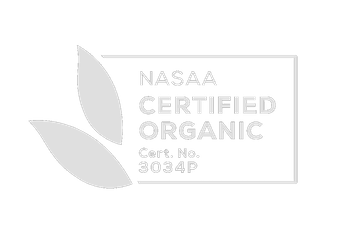From an integrative and functional medicine perspective, when adopting a leaky gut treatment we are looking to treat the underlying cause. And sometimes the cause can be difficult to define and there may be a few layers that you need to work through.
For example, if you have a bacterial or parasitic intestinal infection (that would be highlighted through microbiome testing) then this would be the first thing to sort out in conjunction with a practitioner.
But as you can see from the list of possible cause highlighted in my Leaky gut article, there are many things that you can change about your diet, use of medications and states of stress that provide easy and adoptable options if you are guiding yourself through this process.
Leaky gut diet
From our experience and from the advice given to us by our practitioners, diet truly is the cornerstone to healing and repairing the gut. And really when you think about it, it’s obvious that what you consume is going to have a direct impact on the health of our gut lining. Many practitioners who see gut health as a crucial factor in overall health report that they see patients improve significantly when they start eating a healthier diet.
It is always a good idea to eat a nutritious, unprocessed diet that includes foods that help quell inflammation (and avoids foods known to trigger inflammation), which may, at least in theory, help to rebuild the gut lining and bring more balance to the gut flora.
These leaky gut diet considerations certainly made us feel better without any side effects.
1. Bone Broth for leaky gut
It would come as no surprise that a pivotal part of our healing was the daily inclusion of bone broth in our diet. Bone broth provides the gut with the accessible nutrients which act as the building blocks to help repair the gut lining and is fabulous for healing intestinal permeability. It contains collagen (or the cooked form gelatin), which has been shown to restore the health and integrity of the mucosal gut lining by ‘sealing’ these leaks and reducing inflammation. It is also easy for a damaged gut to digest and reap the benefits of its protein and minerals. It naturally attracts water and increases stomach acid which both aid in the digestive process. By reducing permeability and inflammation, gelatin helps to promote probiotic balance and growth, which is crucial for optimum gut health.
Our dehydrated bone broth powders have been a cornerstone in our healing and wellness maintenance and contains added gut superfoods that will take its gut-restoring potential to the next level. The vegetables add prebiotic, anti-inflammatory, flavonoid and nutrient properties, and the spices we use have been specifically shown to improve gut integrity.
If you suffer with increased intestinal permeability or one of the many conditions associated with leaky gut, this is a must-have in your regular culinary repertoire. Bone broth can even be considered a leaky gut supplement! It also helps to curb sugar cravings which is awesome when going through the elimination process) and it a great coffee alternative as it gives you a longer lasting boost if you find you need an afternoon pick me up. With more and more research showing how central gut health is to our overall health and wellness, bone broth is an easy and effective product to integrate into your diet to assist in healing and as a preventative measure.
2. Remove inflammatory foods
This means removing any inflammatory foods from your diet, many of which are included in the list of possible leaky gut causes too.
· Removal of gluten
These were key things that we addressed and while this can seem completely overwhelming when you begin the process of reading ingredient lists we found the “keep it simple” approach the best way to curb the initial overwhelm. Rather than completely removing everything is one go, we worked with a weaning process that meant that each time we shopped or cooked we would simply make different choices so that eventually these became the way that we shop, cook and eat.
Gluten is probably one of the most tricky as a many of the “gluten free” alternatives on the supermarket shelves are not exactly healthy! Corn, maize and soy are often used in many gluten free options as they are cheaper than the healthier alternatives like almond meal, buckwheat flour, quinoa flour or brown rice flour. Again it is really important to read the ingredient lists and begin to educate yourself around what are healthy alternatives. Our go to for store bought breads are GF Precinct but we also make our own with a blend of buckwheat, brown rice and arrowroot and any cakes we make have an almond meal base.
The removal of gluten and wheat does take a shift in mind set too as our western diet is so geared at consuming bread, pastries and biscuits. We gradually removed gluten and it has become easier simply due to the fact that we feel so much better without it!
· Removal of dairy
As a cheese loving family, this one took a huge shift in mind set but we finally got there. As a passionate chef and growing up in the wine region of the Barossa Valley, cheese had been a love of Tony’s and cheese platters were a regular in our lives.
When it was found that Tony had a SIBO infection that needed attention it was clear that he needed to break up with cheese in particular. After having a lengthy break one night while socialising with friends he couldn’t resist a slice of gooey soft brie that was sitting on a platter in front of him. But his bodies immediate reaction of intense nausea highlighted just how much his body didn’t want or need it.
We still occasionally enjoy hard, aged cheeses like parmesan as the lactose in these is much less that soft and cheddar cheeses. Otherwise we have moved to cashew cheese which has the added benefit of probiotic nourishment too.
· Removal of additives, preservatives and processed sugar.
A diet high is processed sugar, particularly fructose, has been shown to damage the intestinal wall as well as encourage that growth of intestinal bacterial and fungal infections. Unfortunately, it is not only the ‘sugary’ foods that you would expect to be high in sugar but in modern food production it is often used as a preservative and a flavour enhancer in even savoury food items like crackers.
This again highlights the importance of reading ingredient labels to truly know how much processed sugar you are consuming. Another thing to remember is that there are over 60 terms that ‘processed sugar’ is called on these ingredient lists and many of these are extracted from GMO wheat and corn.
The same applies to additives and preservatives. We opt for the steer clear rule here to ensure that our diet is as clean as possible and once you start reading ingredient labels you will soon realise how difficult these are to avoid in packaged food products. Simply rule is that if it is a number then it is sourced from a laboratory not nature. I plan to do a dedicated article on which are the most important ones to stay away from!
· Avoid coffee and alcohol
If you’ve made it this far into the elimination list it’s possible that you may be crying right now. I feel you. This one is hard too! And here we have opted for a moderation approach.
The acidity of coffee can negatively impact your gut lining and it is well known that alcohol can increase inflammation within the gut. And both of these tend to be coupled with other inflammatory foods eg. coffee with milk and alcohol with sugar.
So what does moderation mean? Well, we choose to only have alcohol a maximum of 2 nights per week and tend to limit that to a couple of standard drinks. Having said that, we do allow ourselves to occasionally let our guard down for special occasions but we have found that the more we moderate this consumption, the less we feel the need for it.
And then there is coffee! We limit this to one good quality black coffee per day. Bone broth has also helped to curb the craving of a second cup in the afternoon. Another great idea is to try green tea as this still has caffeine but is also gut supportive.
· Increase your intake of prebiotics and probiotics
Prebiotics provide the healthy fibres to encourage the growth of your protective and healing gut bacteria. Probiotics work by improving the environment for your good gut bugs to flourish as well as helping to reduce the levels of bad gut bugs. Adding fermented foods such as kombucha, water kefir and sauerkraut are great ways to support a healthy microbiome which also helps to protect the gut lining from further damage.
Taking a quality probiotic prescribed for you is also an important part of healing a leaky gut but here it is important to actually have you microbiome analysed through a integrative or functional practitioner so that you know exactly what overgrowths, undergrowths or infections are present.
3. Other factors to support gut health
· Reduce stress
Chronic stress has been shown to harm beneficial gut bacteria and the gut lining. The gut-brain axis is a two-way superhighway of information that travels between our gut and our brain via our Vagus nerve. Inflammation in the gut can cause inflammation in the brain and vice versa.
Great tools for stress reduction and digestive function are free and simple. Movement and breathing.
As a yoga and meditation teacher, I have found that breath practices, meditation and the more physical aspects of yoga help to alleviate stress for us. If yoga is not your thing, any exercise done in moderations (ie. so that it does not induce further stress) at least 4 times per week is great for stress relief. Coupling this with 10 minutes of deep breathing per day and come back to that all important question “How do I feel?”
· Sleep more
Lack of sleep can cause a poor distribution of healthy gut bacteria, possibly resulting in increased intestinal permeability. This has certainly been an issue for me over the years and I have gathered tools and aim for a good sleep routine that works to support my health and wellbeing.
This might look like working towards heading to bed a bit earlier each night, listening to a sleep meditation if you struggle to get to sleep or playing one if you wake in the middle of the night.
Making the above dietary changes will also help to improve your sleep too.








